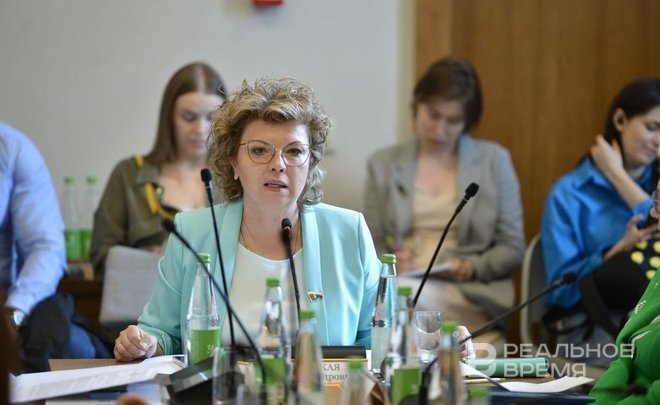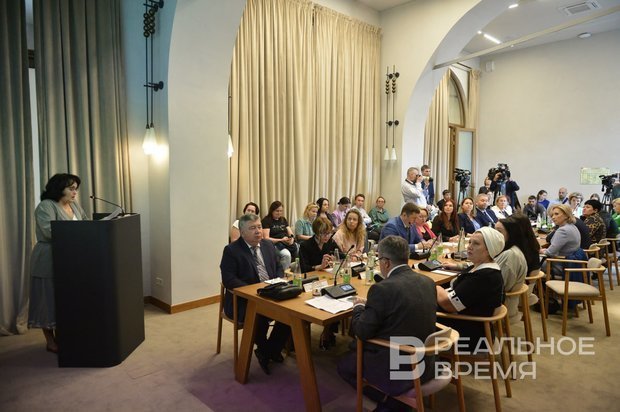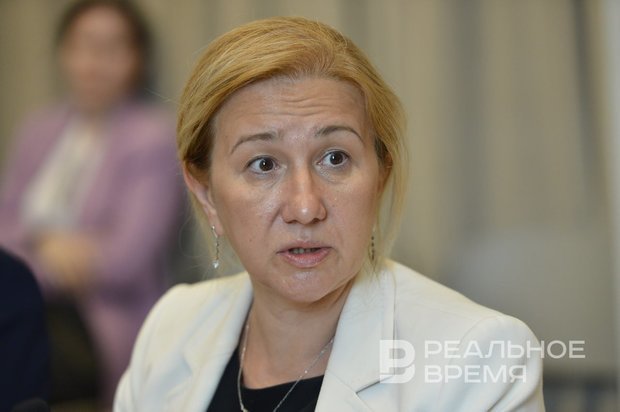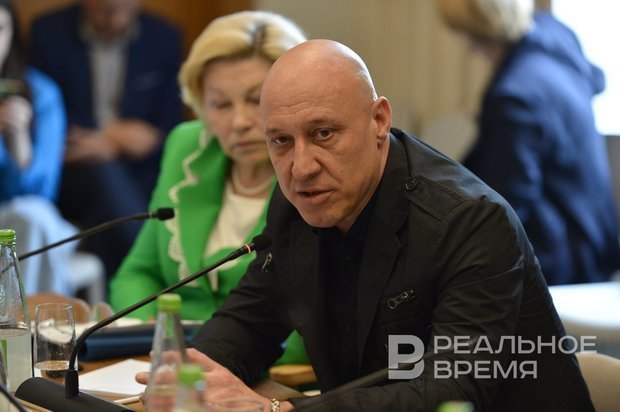‘Tatarstan keeps the bar high in the issue of preserving ethnic and cultural diversity’
A visiting meeting of the State Duma Committee on Culture has been held in Kazan, where they discussed the preservation of ethnocultural traditions of the peoples of Russia

“Ethno-cultural diversity is a topic that is close to absolutely everyone," said Elena Yampolskaya, the head of the Duma Committee on Culture, speaking at the visiting meeting in Kazan on 6 June. The meeting was held in the Kremlin in the government offices, where they discussed the legal basis for preserving the ethnic and cultural diversity of Russia. One of the country's priorities is to strengthen the traditions of the Russian peoples, Yampolskaya noted. State Duma deputies and industry experts made their initiatives on this occasion in the capital of Tatarstan. Read the details in the material of Realnoe Vremya.
“Tatarstan reverently treats the traditions of their ancestors”
Tatarstan is a good example of preserving cultural values of different peoples. Both Russian and Tatar holidays are celebrated together in the republic. With these words, Elena Yampolskaya, the chairman of the State Duma Committee on Culture, opened the meeting in Kazan.
“I am very glad that this meeting is being held in Tatarstan, because it is not the first year I have known the republic and I know how much attention is paid here to ensure that all this cultural diversity is preserved. There is no such people, there is no such nationality that would not have its own big holidays, its own cultural events, which would have any obstacles in implementing the traditions of their ancestors. On the contrary, this is treated, as far as I understand, very reverently. Everything that I have been seen so far suggests that Tatarstan holds the bar extremely high in the issue of preserving ethnic and cultural diversity," she noted.

Turning to the topic of the meeting itself, the head of the duma committee voiced the problem such as the mass closure of municipal regional cultural organisations. She noted that this trend is particularly characteristic and, at the same time, critical for small settlements, because there is “no alternative”.
In turn, Minister of Culture of Tatarstan Irada Ayupova told how things are on this issue in the republic. According to her, over the past 10 years, the number of municipal cultural organisations in the region has decreased by 4%. This is also due to urbanisation: the houses of culture themselves are in an unsatisfactory state, and there is no reason to repair and develop them due to a decrease in the population in the villages, the minister explained.

Nevertheless, as Ayupova noted, Tatarstan is among the three leaders in the number of such organisations. At the moment, there are 2,791 cultural institutions, 1999 cultural and leisure centres and 1,509 libraries in the republic.
The head of the Ministry of Culture of the Republic of Tatarstan proposed to develop a system for calculating the workload of employees of cultural institutions. With its help, it will be easier to keep statistics on the attendance of citizens and track which classes are most interesting for them.
“We live our lives, young people — their own”
To preserve the cultural characteristics of the peoples of Russia, it is also necessary to ensure the interest of children in the traditions of their nationalities. Denis Maydanov, a State Duma deputy from the Moscow Region, told about this at the meeting.
According to him, young people are not passionate about the life of the state and the traditions of their country: “We live our own lives, young people live their own.” To solve this problem, according to him, it is necessary to combine youth culture with traditional culture.
For example, Maydanov told about the annual children's competition of folk performers “Music and Development”, which was held for the first time in 2021. It is planned to attract the winners of two seasons and 10 Russian performers to a single project in which representatives of two generations will perform old songs together in a modern arrangement.

Thus, it will be possible not only to attract young people to the traditions of the people, but also to create a “creative elevator” for them, the deputy believes.
Also at the meeting, representatives of cultural centres, creative teams and other representatives of the industry made their initiatives. So, one of the speakers reported on her own clothing brand, in which she used ethnic motives.
“We said today that a suit is a language. Who knows this language in modern society today? Practically no one. Any rite is a language, a set of meanings, life-affirming value meanings. Who knows today among not only the youth, but even among my generation, the generation of my parents? This is the history, the language of our tradition, the symbols of our tradition — they need to be revived, they need to be systematically popularised," said Irada Ayupova.